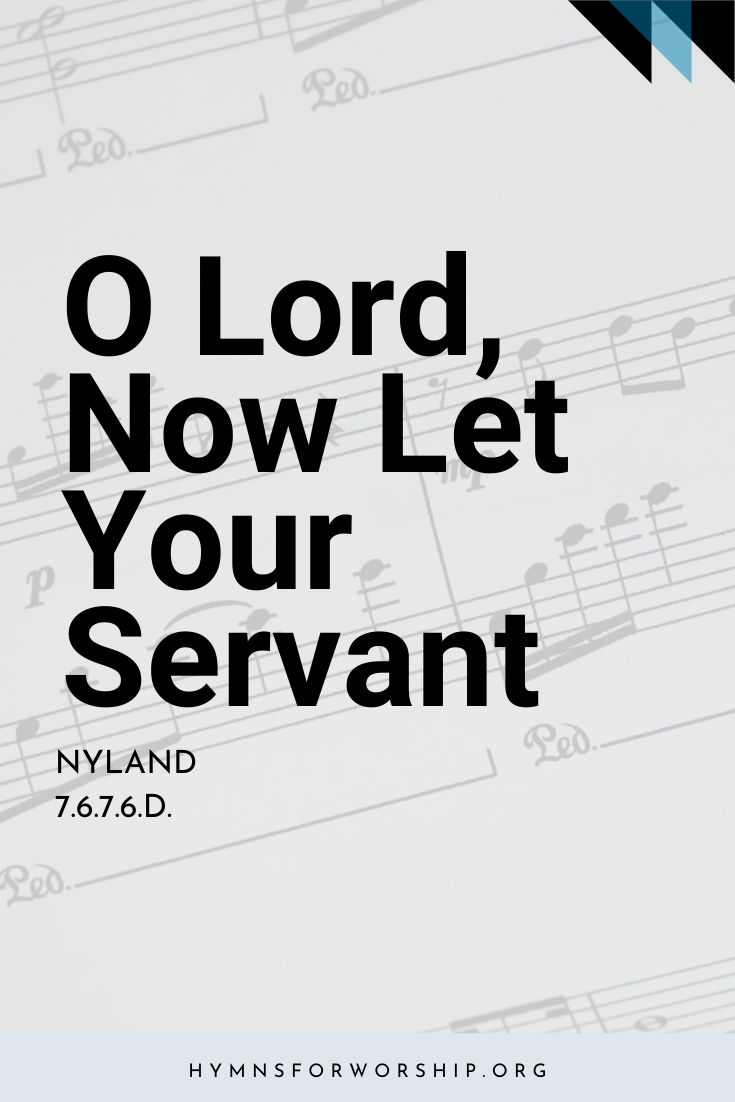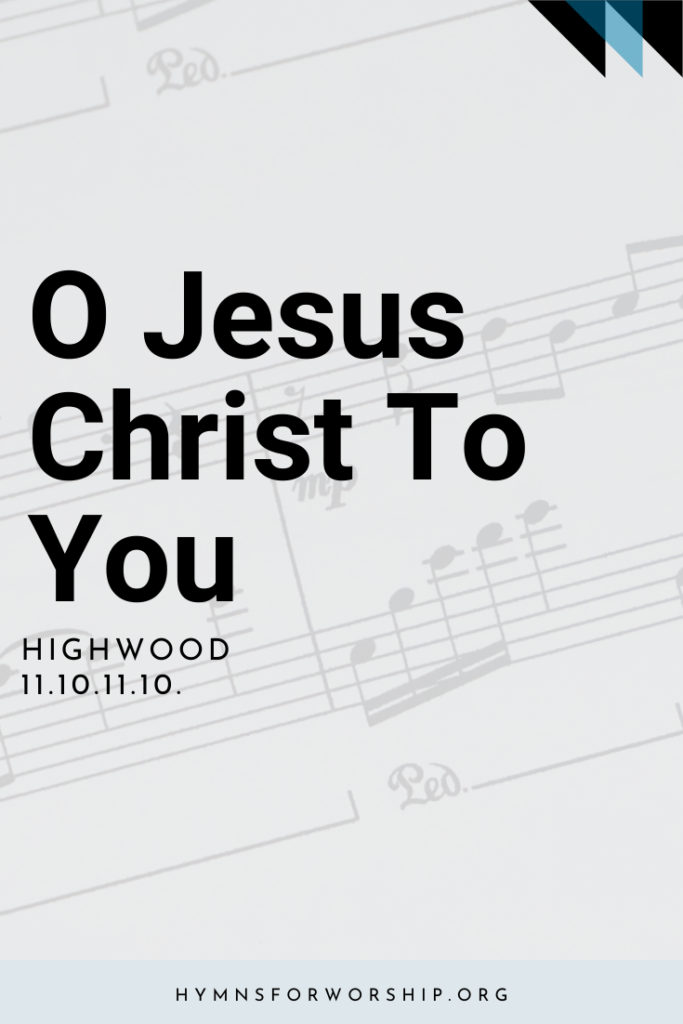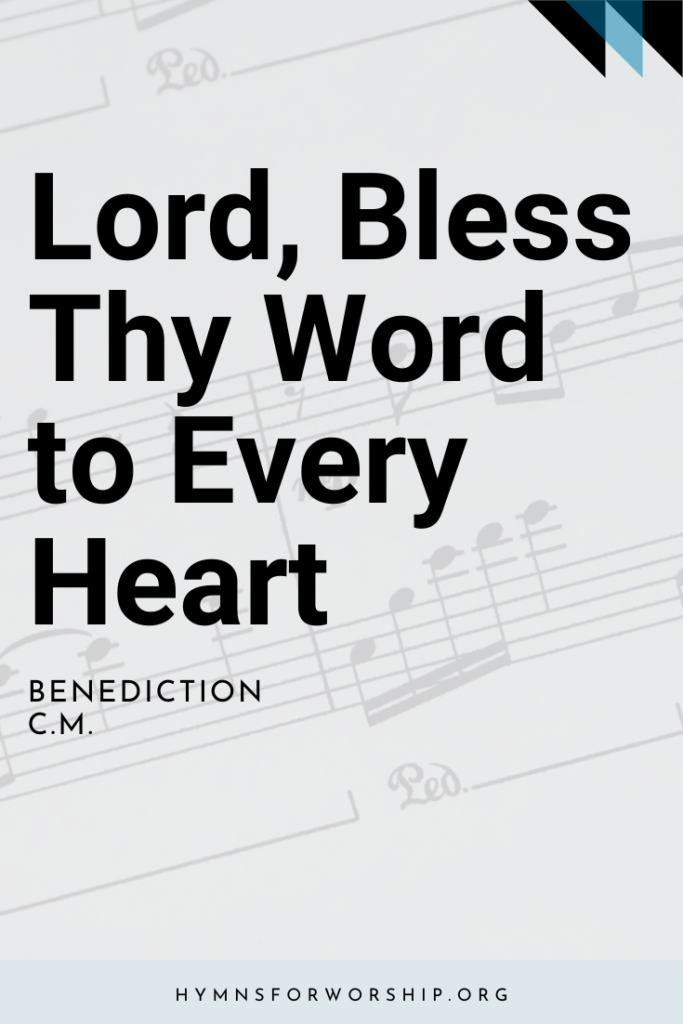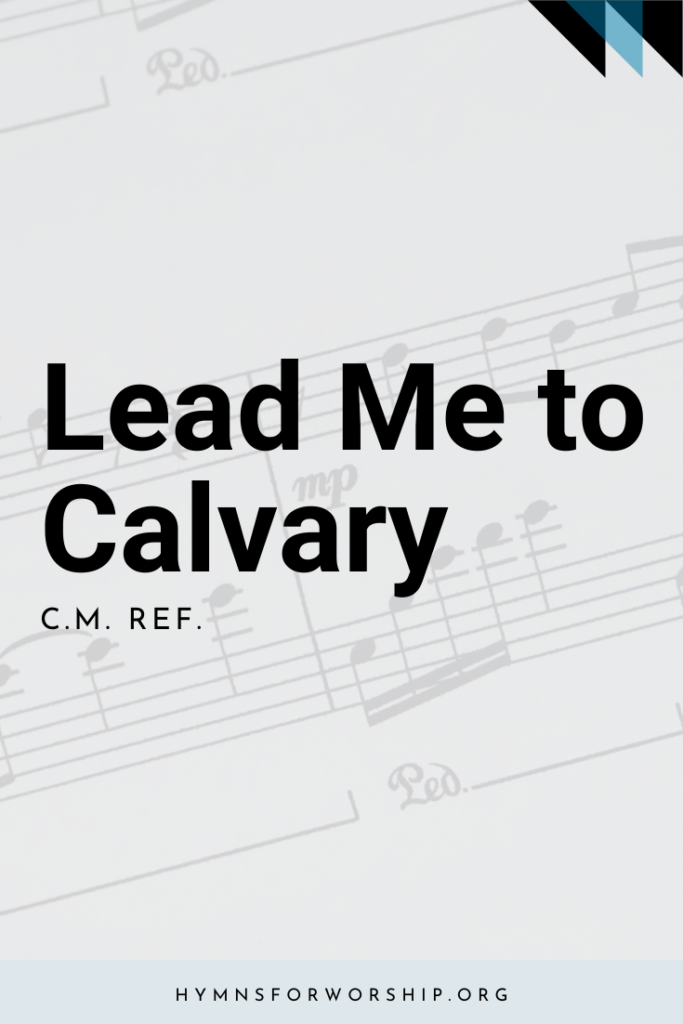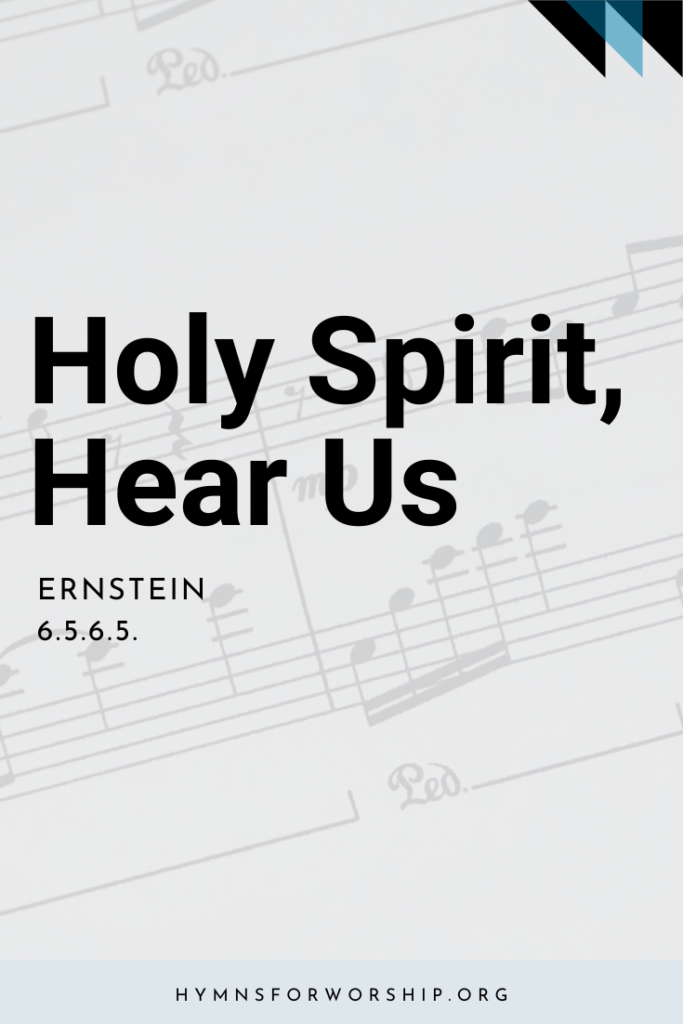WORSHIP >> CLOSE OF WORSHIP
SDAH 67
O Lord, now let Your servant
Depart in heav’nly peace,
For I have seen the glory
Of Your redeeming grace:
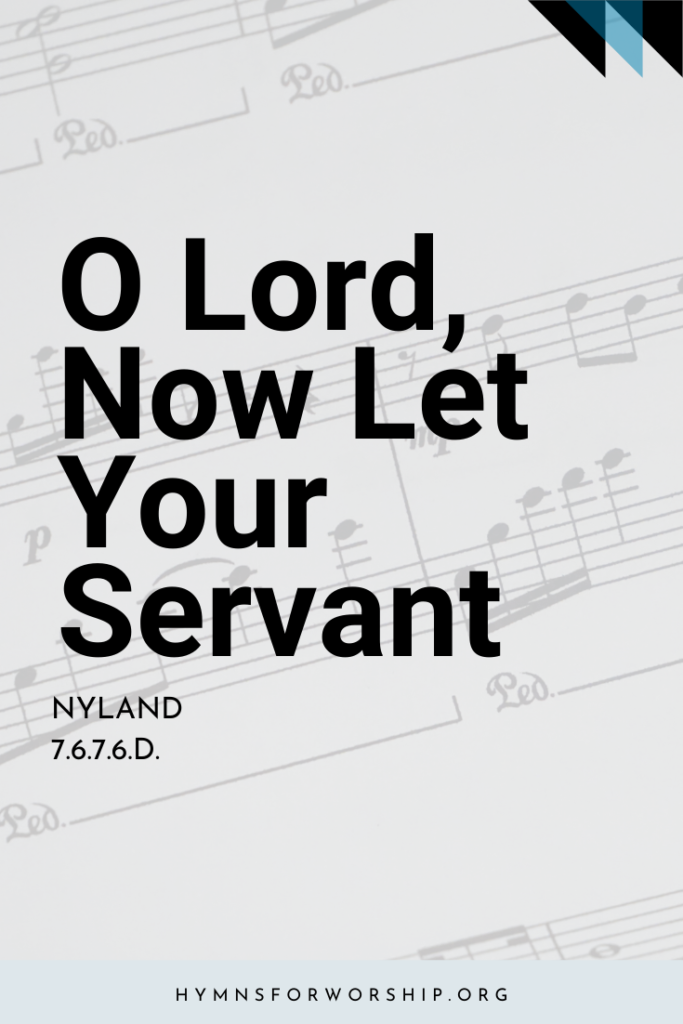
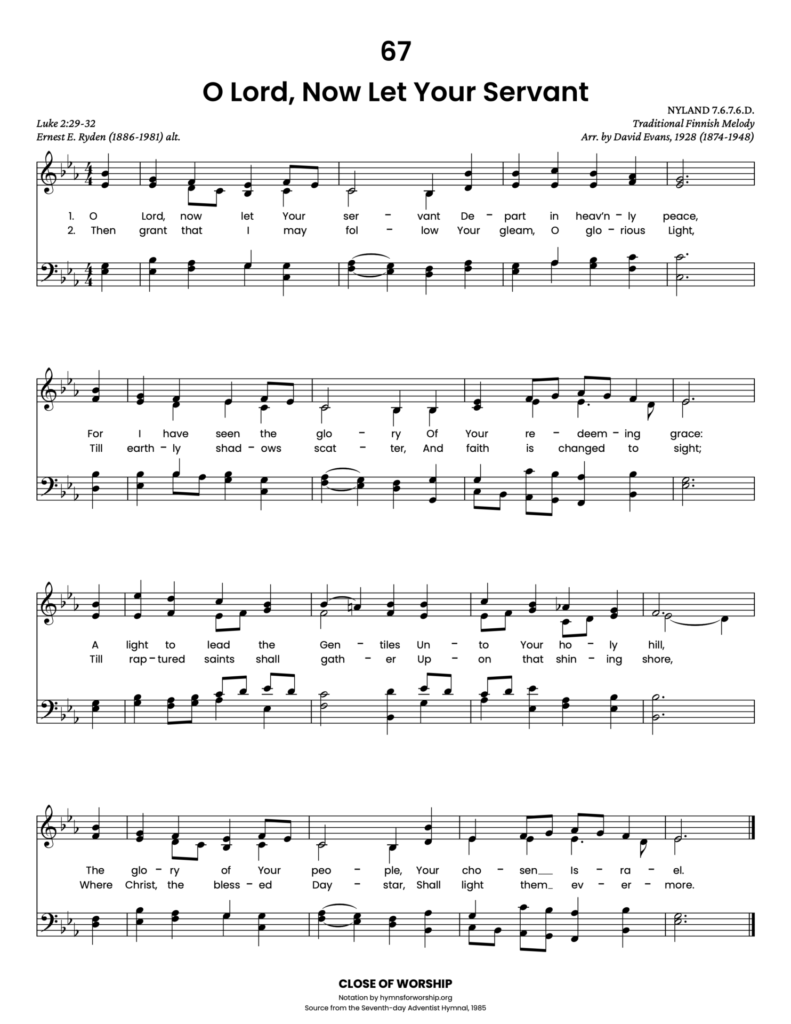
Get the hymn sheet in other keys here
For Worship Leaders
Make each hymn more meaningful with these helpful tools: Short, ready-to-use hymn introductions for church bulletins, multiple ways to introduce a hymn based on your worship theme and in-depth history and insights to enrich your song service.
Hymn Spotlight: O Lord, Now Let Your Servant
Inspired by Simeon’s prayer in Luke 2:29-32, this hymn by Ernest Edwin Ryden (1886–1981) reflects the deep faith of one who has seen God’s salvation. Known in Latin as Nunc Dimittis, this passage has long been sung as a closing prayer in worship. Ryden’s hymn was first published in The Hymnal (1925) by the Lutheran Church, Augustana Synod, and later adapted with modernized language.
The tune NYLAND, a Finnish folk melody, first appeared in Finland’s Evangelical Lutheran Church Chorale Book(1909). It was introduced to English congregations through the Revised Church Hymnary (1927), where it was harmonized by David Evans.
As we sing this hymn, may we, like Simeon, find peace and assurance in knowing that God’s promises are fulfilled in Christ.


Text
1
O Lord, now let Your servant
Depart in heav’nly peace,
For I have seen the glory
Of Your redeeming grace:
A light to lead the Gentiles
Unto Your holy hill,
The glory of Your people,
Your chosen Israel.
2
Then grant that I may follow Your gleam,
O glorious Light,
Till earthly shadows scatter,
And faith is changed to sight;
Till raptured saints shall gather
Upon that shining shore,
Where Christ, the blessed Day star,
Shall light them evermore.

Hymn Info
Biblical Reference
(a) Luke 2:29-32 (b) 2 Cor 5:17; 1 Pet 1:19
Author
Ernest E. Ryden (1886-1981)
Copyright
Words copyright by Board of Publication, Lutheran Church in America. Music from Revised Church Hymnary 1927 by permission of Oxfor University Press
Hymn Tune
NYLAND
Metrical Number
7.6.7.6.D.
Arranger
David Evans, 1928 (1874-1948)
Tune Source
Traditional Finnish Melody
Theme
CLOSE OF WORHIP

